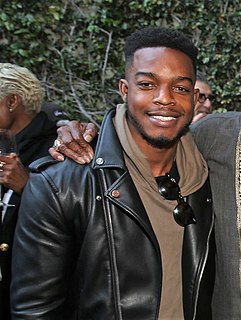A Quote by Noam Chomsky
Let's take Adam Smith, the patron-saint of capitalism, what did he think? He thought the main human instinct was sympathy. In fact, take a look at the word "invisible hand." Which, of course, you learned about, or you think you've learned about. Take a look at the actual way in which he used the phrase. There is almost no relation to what is claimed.
Related Quotes
If you go back to Adam Smith, you find the idea that markets and market forces operate as an invisible hand. This is the traditional laissez-faire market idea. But today, when economics is increasingly defined as the science of incentive, it becomes clear that the use of incentives involves quite active intervention, either by an economist or a policy maker, in using financial inducements to motivate behavior. In fact, so much though that we now almost take for granted that incentives are central to the subject of economics.
One of the lessons learned from 22 July is that we have to take seriously all those people who take part in debates on the Internet, expressing extreme views, and then meet them, discuss with them, bring them into the open. We have not used bans or used the laws to try to forbid parties or political tendencies which we don't like.
I never fought, I never learned kung fu or boxing, I never went into these sportif competitions. I wouldn't cross the ocean. I think it's ridiculous to take such risk. But look, people love to do that. But I was not afraid of doing things I wished to do. I did not think that woman would be restrained. I never saw that, especially not in filmmaking, where you don't have to be strong.
What I've learned about that word is context, where the world is coming from - in the era the film is set, it obviously is used derogatorily. In 'Selma,' it was the same sort of thing. Of course now, in music, it's used in many more ways, including ways that takes the sting out of it. It all depends on where and when it is used, and how you look at it. But again in 'Race,' it is intensely disrespectful.
Skateboarding is not a hobby. And it is not a sport. Skateboarding is a way of learning how to redefine the world around you. For most people, when they saw a swimming pool, they thought, ‘Let's take a swim.' But I thought, ‘Let's ride it.' When they saw the curb or a street, they would think about driving on it. I would think about the texture. I slowly developed the ability to look at the world through totally different means.





































